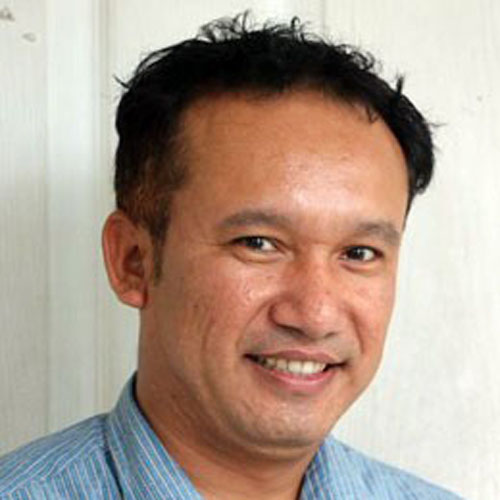Opinion
On the rise but under prioritised
The state must invest in strengthening mental health management systems
Obindra B Chand & Sudeep Uprety
Approximately, one in every ten people suffers from a mental health condition worldwide while only one percent of the global health workforce provides mental health care. The situation is even more serious and alarming in cases of Low and Middle Income Countries (LMICs). From battling deeply entrenched social stigma around mental health-related issues to navigating an acute shortage of health care facilities and services-this region faces its own particular challenges. A study published by the Conflict and Health Journal found that until recently, four out of five people with severe mental illness in LMICs received no effective treatment. Nepal is no exception.
An alarming context
An acute shortage in the number of health service providers and required facilities continues to hinder the long-overdue advancement of Nepal’s mental health sector. The single government-run mental health hospital in the entire country, which is located in the capital, paints a telling picture of the disturbing overall scenario. With 0.58 bed per 100,000 people and an equally dismal doctor-patient ratio, it offers little for the more than 2 million people aged between 16-40 who suffer from mental health conditions in the country. The scenario beyond the capital is even more upsetting. Without access tothe required capacity to diagnose and treat, many people from remote parts of the country who suffer from emotional and psychological conditions are compelled to rely on local healing systems. As a result, the overall gravity of the situation is hard to gauge as many cases are neither reporter nor recorded systematically.Still, mental health remains highly under-prioritised; only one percent of the entire national health budget is allocated for the issue.
Following the Gorkha earthquake of April 2015, renewed interest in the topic led to some progress. Several community counseling centres have been established and short-term counseling training for community health workers has been conducted. The feedback loop established by many of these interventions has been quite useful; when smaller centres are unable to treat specific conditions or require further help, they refer cases to higher health centres. Regardless of whether or not they can effectively treat specific conditions, they continue to hold immense value as a basic point of contact for community members who otherwise would not have primary access to any other option.
Likewise, initiatives driven by national organisations such as TPO Nepal, CMC-Nepal, KOSHISH Nepal, and several others have also demonstrated their commitment to the issue. By raising awareness about the issue at the grassroots-level through projects such as radio shows, they are effectively working to erase the stigma around mental health problems.
Broadening our understanding
Rampant poverty and unemployment, hectic and stressful lifestyle and more importantly, a decade-long insurgency compounded by two recent earthquakes have only exacerbated the issue. As members of the general public-and surprisingly, even some clinicians and public professionals-perceive that some mental health conditions are untreatable, people with these conditions experience severe discrimination and social stigma.
Mental health policies in Nepal were promulgated for the first time in 1996 to address calls for the establishment of mental health systems in the country. This policy envisioned ensuring availability and accessibility of minimum mental health services to the population with a particular focus on vulnerable and marginalisedgroups among others. In 2006, the policy was supplemented by a proposal for a ‘Mental Health Bill’ to establish a designated health centre for mental health services. Likewise, the National Health Policy 2016 (which is due to be endorsed by the parliament soon) will serve as a benchmark for policy guidance on mental health interventions and services. The Ministry of Health and Population, working alongside the Nepal Health Research Council, is conducting a groundbreaking comprehensive National Mental Health Survey (with financial support from World Health Organization). The historic survey will generate more relevant statistics to better gauge the mental health situation in the country—and thereby, more effectively implementevidence-based interventions.
Next steps
In addition to the survey, a long-overdue expansion is required. These include further investment in the mental health sector - with an increased allocation of the national health budget towards the issue; collective, and collaborative efforts from key stakeholders to work on curative, preventative and promotive aspects of mental health and well-being; provisions of mental health services at the community level across the country; further investment into research to inform targeted interventions.
The recent political change and state restructuring in Nepal has added confusion regarding the defined roles and responsibilities among key actors and stakeholders for operating in the new administrative setup. This situation not only calls for strengthening or expanding health systems in general and mental health services and facilities in particular, but also begs for making collective and collaborative efforts to broaden our understanding of mental health to factor in the changing social, cultural, and political context.
All these policies and reforms only make sense if they are backed by strong political will. The onus lies in the political leadership and bureaucracy to recognise the necessity to intervene in the national mental health system and prioritise issues that have been neglected for far too long.
Chand is a health and social sciences researcher and is affiliated with HERD International. Uprety is a research uptake and development communications professional.




 9.6°C Kathmandu
9.6°C Kathmandu











